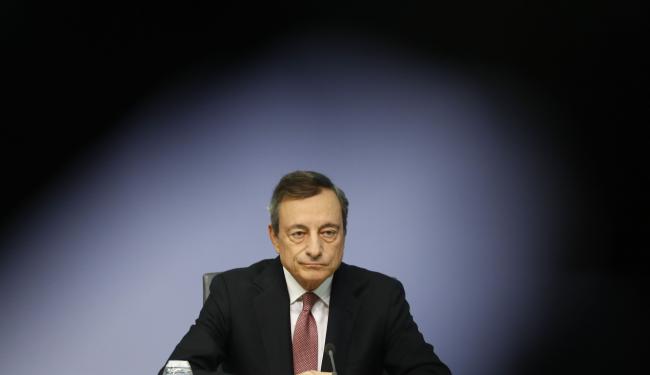(Bloomberg) -- Mario Draghi has locked in monetary policy for the next three years while bequeathing several tricky tasks to his successor at head top of the European Central Bank, according to a Bloomberg survey of economists.
Most respondents said the ECB won’t raise interest rates until late 2022, with asset purchases ending about three months before then. All predicted that officials will keep policy on hold when they meet on Oct. 24, after their big monetary-stimulus push in September.
In the meantime, former International Monetary Fund chief Christine Lagarde, who will take over when Draghi departs at the end of the month, is expected to rewrite the rules for asset purchases, and adjust the commitment to keep rates low until inflation is solidly in line with the ECB’s goal. She’s also likely to try and convince governments to step up fiscal stimulus.
“We’re really looking for that central bank messaging to the governments to go forth and spend -- ‘help me out, work with me’,” Karen Ward, chief market strategist for EMEA at JP Morgan Asset Management, said on Bloomberg Television. “We all know the ECB’s toolkit is fairly dry.”
What Bloomberg’s Economists Say
“Draghi will likely reiterate -- if not intensify -- calls for fiscal policy to play a larger role...Further details on monetary policy are unlikely to emerge. Draghi leaves with unfinished business on the stimulus program, but his successor, Christine Lagarde, will have to preside over the remaining debates about asset purchases.”
--David Powell and Maeva Cousin.
The economists estimate that the central bank has about 320 billion euros ($356 billion) of buying space left, after previously having accumulated 2.6 trillion euros of debt. By the simplest calculation, assuming purchases at a monthly pace of 20 billion euros and a stable universe of eligible assets, that means policy makers will run out of fodder in early 2021.
Survey respondents predict a change in asset-purchase rules by next September. Neither raising caps on how much of any bond the ECB can buy, nor a shift in how purchases are distributed across countries have been acceptable options in discussions in the past.
Changes to the ECB’s forward guidance are anticipated by the start of 2021, although a deterioration of the economic outlook could force policy makers’ hand a lot sooner. The IMF cut its growth forecasts for the euro area on Tuesday, seeing an expansion of just 1.4% next year.
New forecasts are due in December and will include first estimates for 2022. While economists saw risks from trade tensions to Brexit chaos receding somewhat since the previous survey round, the new projections are likely to still be subject to a large degree of uncertainty, bolstering the need for government support to underpin growth momentum.
Inflation is running at around 1%, barely half the ECB’s goal. Austrian governor Robert Holzmann this week suggested lowering the target, questioning the point of a massive monetary effort that might only achieve a small boost.
“The ECB is confounded by a cyclical downturn that invalidates its models,” said Alastair Winter, an economic adviser to Global Alliance Partners. “Very little can be done through monetary policy, and Lagarde’s job is to provide ‘moral’ support to legitimize fiscal measures and then buy the new bonds funding them.”
